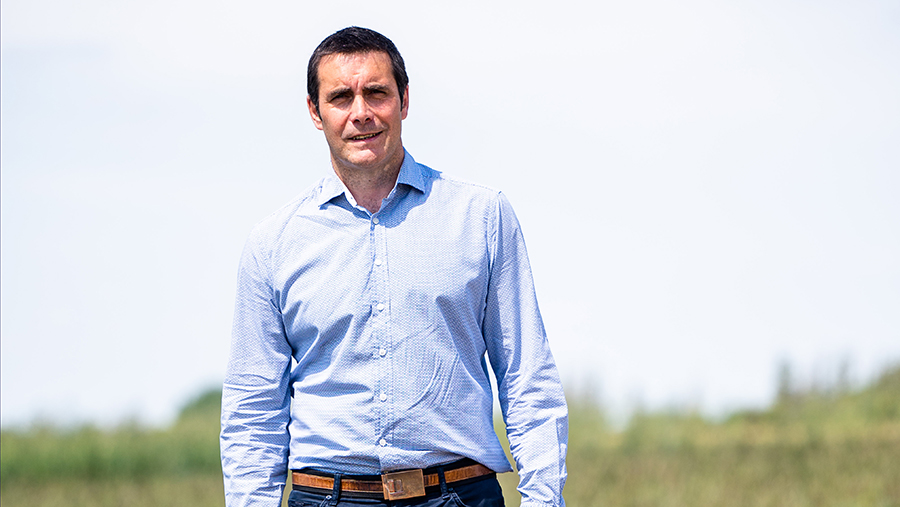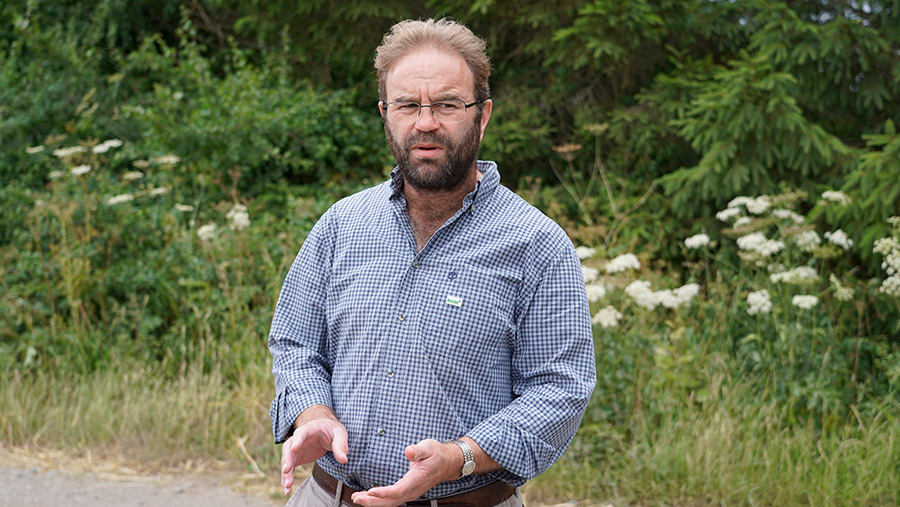Advertiser content
Farming – the biggest job on earth
Agriculture is currently undergoing unprecedented changes and it is an industry that has a powerful impact on humanity and the animals on our planet.
Farmers have an increasingly difficult and crucial role in growing food, energy and fibre crops while balancing increased productivity, environmental protection, and societal values.
This summer alone, extreme heat and lack of rain has led to many British and European farmers facing the consequences of extreme weather conditions on crop yields and are looking at ways to build greater resilience into their production systems.
Empty shelves of fresh fruit and vegetables are becoming more common, a consequence of climate change, and supermarkets’ slow response to paying more to compensate growers for increasing costs.
Many growers are warning that if prices don’t rise, they will not invest in crops for next season at a time when local production is seen as desirable by consumers.
These are the fundamental reasons why we believe farming is the biggest job on earth.
Farming’s conversations
Increasingly, society has a view on how land should be used, what foods should be grown and how much space for nature should be provided on our UK farms.
Added to this, changing dietary choices, increases in food prices and the need for sustainable food production all add to the increasing complexity in the roles and responsibilities of our British farmers and growers.
Often these debates create uncomfortable conversations, however, history has proven that dialogue helps to overcome differences and to foster understanding.
Committed to supporting farmers to find the right balance
Society’s awareness and attitudes to farming matter because consumers’ perceptions strongly influence buying decisions and their support of farming practices.
Where we have a strong emotional connection to a farmer’s story, and based on respect and understanding, the freedom for that farmer to operate their business is greatly enhanced.
BASF stands committed in supporting farmers, to help communicate and tell their story.
Farmer Colin Chappell says: “A few years ago my focus would be all about the profits and the bottom line, my approach was, the more you put on a crop, the more you get out of that crop.
“That’s fantastic. But that model only works for so long before you realise it’s broke.
“So you find other options, you find other ways and if those other ways include embracing the wildlife element, this genuinely fills you with pride that you can mix nature with a profitable farming ethos.
“Sustainability to me means farming within my own means so that I can make a living for my family whilst also looking after the environment and particularly the water that surrounds me.”
Balancing land use and nature
Jon Williams, BASF’s public and governmental affairs manager, is passionate when it comes to engaging with stakeholders on policy changes to assess and understand the potential impact on the industry.
“Farmers have an uncertain time ahead of them, new legislative reforms from policymakers and greater expectations from consumers, which centre on future income streams, labour and capital availability and access to wider markets.
“A big part of the coming decades will be revenues generated from greener agriculture –coming from both public and private sectors.
“Balancing land use, its management, and how lasting soil health is generated will become more complex and nuanced as the earning potential from trading carbon and biodiversity enters farm business decision making.
“As it gets more complex, we want to help drive those conversations, where we can, in an informative, participative, and knowledge-enhancing way.”
Feeding conscious minds and tummies
The pandemic put food and the countryside’s green space further up society’s and the media’s agenda, it encouraged people to be more food conscious – what they are eating, its origin and how it was grown. People noticed nature in towns and rural places.
For those who can afford food and access to green space, the legacy has been an enhanced level of consciousness about their choices.
However, for many households, food selection boils down to affordability, as the cost-of-living squeeze affects growing numbers of homes.
Farming is central to meeting every person’s access to healthy, affordable and nutritious food – as well as maintaining a healthy space for nature.
These sometimes-conflicting demands are challenging to navigate, let alone communicate.
What technologies are acceptable in farming?
Linked to consciousness is a consumer’s right to choose what technologies and inputs are used to grow their food.
To make these decisions, consumers need information to help them understand the consequences of their choices – as an example, fewer crop inputs routinely diminish yields and increases the price of the food; conversely, keeping food prices low depends on high production efficiency and intensity, high outputs and low costs.
These choices also link into the nation’s food security and its ability to produce the range of foodstuffs sought by society.
The rise in food and farming inflation
Jon Williams adds, “The rise in costs not only affects households, but it also affects businesses, including farming.
“The ability of food manufacturers and retailers to maintain low prices has ended and the food supply chain has no option but to pay more for its raw ingredients from primary producers.
“The communication about why prices have risen is something both the food and farming sectors have had to grasp, not being paid more to cover rising costs is no longer an option.
“The explanations are complex – increased focus on national food diversity is something that is now back on policymakers’ agendas – growing more fruit and vegetables, in particular – however it takes time to get this production on stream and the labour shortages to plant, pick and pack haven’t gone away.”
Why is talking to society so important?
Colin Chappell, a farmer, says that speaking to people is vital and is key to his approach: “If you are isolated on your farm, with your own thoughts and your own angers and throwing stuff at the telly and trying to counter criticism that always seems to be levelled at farmers, find a way to connect with people and talk.
“I speak to the public about what we’re doing. I can see their perspective, and if I can, in some small way, help them to have a greater understanding of where food comes from, then maybe I’ve just won in that situation.”
Looking ahead
Jon adds: “There is an undeniable resilience amongst farmers to navigate and address society’s big challenges as the world navigates the journey to net-zero; undoubtedly amidst the difficulties, opportunities will arise.
“At the heart of doing something different, farming needs to continue to adopt new innovations and digital technologies, and to fully embrace IPM, invest in soil health and use the power of nature in food production.”
“As the demands for change become more complex, our team stands committed to supporting farmers to find the right balance to feed, clothe and fuel future generations. We share farming’s mission – to leave a positive lasting legacy and to flourish.”
Find out more about our Farming, the biggest job on earth activities.
Provided by
BASF offers renowned and innovative fungicides, herbicides, insecticides and growth regulators for agriculture. Our products and services help farmers increase their yields and optimize the quality of their products.


